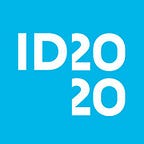Update from the 2017 United Nations General Assembly
Global leaders from the government, public and private sectors convened at the United Nations General Assembly last week to discuss and debate the world’s most pressing issues.
Much of this discussion related to the UN’s Sustainable Development Goals, which strive to end poverty, protect the planet and ensure prosperity for all by 2030. Over the course of the week and throughout the entire city, world leaders, international organizations, and businesses came together to call attention to pressing international issues, identify solutions, and check progress towards the SDGs.
As a public-private partnership focused on goal 16.9 of the SDGs, which aims to provide legal identity for all, including birth registration, ID2020 spent the week busily advocating for digital identity in fora across the city.
ID2020’s Executive Director, Dakota Gruener, spoke at the World Economic Forum’s Sustainable Development Impact Summit and the UN Global Compact’s Future of Humanitarian Response event, both of which emphasized the necessity of public and private sector collaboration to achieve the SDGs.
The WEF summit convened over 700 leaders from business, government and civil society in an effort to further global public interest through public and private sector cooperation and creative technological solutions. Along with Kristalina Georgieva (CEO, World Bank), David Beasley (Executive Director, World Food Programme) and Kelly Clements (Deputy High Commissioner, UNHCR), ID2020 led the WEF Summit session on “Unlocking the Potential of Digital Identity”, which highlighted the importance of interoperability between digital identity systems and common standards to ensure that these programs are implemented in a sustainable, beneficial way.
The UN Global Compact session echoed the importance of private sector engagement in achieving its humanitarian agenda, and specifically strategic and sustainable engagement with private organizations. The event was a series of roundtable discussions on the topics of digital identity, emergency connectivity, digital payments and data sharing and standards. ID2020 led the digital identity discussion, which offered the opportunity to connect with representatives from diverse organizations and identify opportunities for collaboration within the digital identity space. Paul Musser (Senior Vice President, Humanitarian, Development, and Donor Partnerships, Mastercard) and Nathan Naidoo (Head of Mobile Money, GSMA) expressed their view that identity is a key element to successfully implement digital payments in developing countries.
We are very excited by the momentum and progress made last week and to continue to work together with our Alliance members to empower individuals through digital identity. We encourage you to join us.
Originally published at id2020.org.
